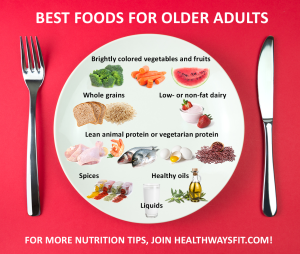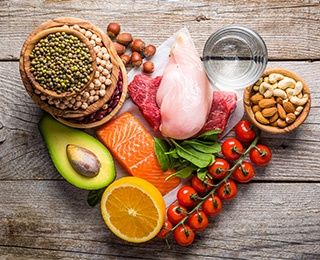As seniors age, their nutritional needs change for various reasons. Aging can lead to changes in metabolism, body composition, appetite, and digestion. It becomes crucial for seniors to focus on maintaining a balanced and nutrient-rich diet to support healthy aging and overall well-being. In this article, we will explore the key nutritional needs of seniors and provide tips on how to meet them.
The Importance of a Balanced Diet
A balanced diet is essential for seniors to maintain good health and prevent the onset of chronic diseases. It involves consuming a variety of foods from all major food groups:
Whole grains
Proteins (lean meat, fish, poultry, beans, legumes, etc.)
Fruits and vegetables
Dairy products (low-fat or fat-free)
Healthy fats (found in nuts, avocados, olive oil, etc.)
By including foods from these groups, seniors can ensure they receive a wide range of nutrients necessary for optimal health.
Meeting Caloric Needs
Caloric needs differ for each individual based on factors such as gender, age, activity level, and health status. However, as seniors tend to have a slower metabolism, their caloric needs may decrease compared to when they were younger.
Seniors should focus on consuming nutrient-dense foods rather than empty calories. Nutrient-dense foods are rich in vitamins, minerals, and other essential nutrients while being relatively low in calories. Some examples include:
Leafy green vegetables
Colorful fruits and berries
Whole grains
Lean proteins
Low-fat dairy products
Healthy fats
By choosing nutrient-dense options, seniors can meet their caloric needs without overeating or consuming excessive amounts of unhealthy fats or sugars.
Concerns with Nutrient Intake
As individuals age, they may face challenges with nutrient absorption and digestion, leading to potential deficiencies. Certain nutrients become especially important for seniors:
Vitamin B12
Vitamin B12 is crucial for maintaining healthy nerve tissues and producing red blood cells. Deficiency in B12 can lead to anemia and neurological problems. Seniors, particularly those following a vegetarian or vegan diet, may have difficulty absorbing sufficient amounts of B12, so it’s advisable to consider a supplement or consume fortified foods.
Calcium and Vitamin D
Calcium and vitamin D are vital for maintaining bone health, which becomes increasingly important as individuals age and face a higher risk of osteoporosis. Seniors should ensure they consume enough calcium-rich foods (e.g., dairy products, leafy greens) and receive adequate sunlight exposure for vitamin D synthesis. Supplements can be considered if necessary.
Potassium
Potassium is essential for maintaining healthy blood pressure and nerve function. It is found in fruits, vegetables, beans, and dairy products. Seniors should try to incorporate these potassium-rich foods into their diets to support heart health.
Fiber
Constipation can become a common issue among seniors. Adequate fiber intake is crucial for maintaining regular bowel movements and optimal digestive health. Whole grains, fruits, vegetables, and legumes are great sources of fiber that seniors should include in their daily meals.
Hydration
Seniors are prone to dehydration due to age-related changes in kidney function and decreased thirst sensation. It is essential for seniors to stay hydrated by consuming an adequate amount of fluids throughout the day, even if they don’t feel thirsty. Water, herbal teas, and fresh juices can be excellent choices.
Final Thoughts
As the body ages, maintaining proper nutrition is vital in promoting healthy aging and preventing the onset of various health conditions. Seniors should focus on consuming a balanced diet, meeting their caloric needs through nutrient-dense foods, and addressing potential nutrient deficiencies. By doing so and staying adequately hydrated, seniors can improve their overall well-being and enjoy healthier aging.




